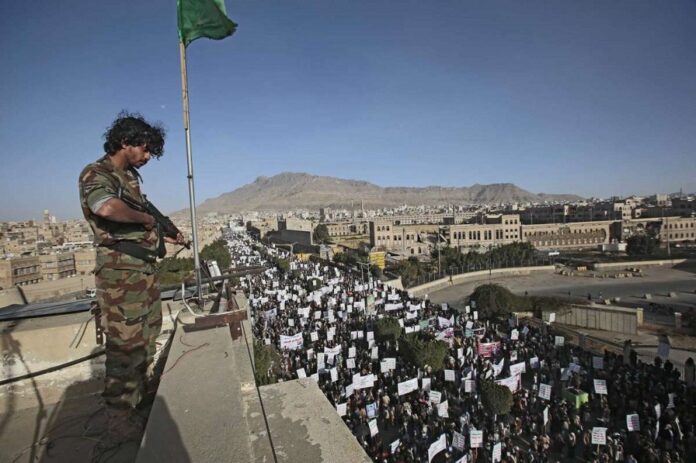
The ‘secret war’ that the US has been waging for five years in Yemen is over. This was indicated by the National Security Advisor, Jake Sullivan, at a news conference at the White House, declaring that Joe Biden goes to announce “the cessation of support for offensive operations in Yemen. It is the second major policy decision of the Biden government, after the agreement reached with Moscow to increase the nuclear arsenals limitation treaty until 2026. The US president has focused most of his action on domestic politics, and only this Thursday spoke of diplomacy.
He did so during a speech at the State Department during which he announced that he had halted the withdrawal of folks troops from Germany ordered by Donald Trump, during a decision that had raised fears that the US would scale back its commitment to NATO. Biden goes to pursue a way tougher policy toward Russia than any of his predecessors since a minimum of the time of Reagan. At the State Department, Biden insisted that “diplomacy has returned,” during a symbolic phrase intended to make the impression that the unilateralism of the Donald Trump administration has passed history.
The exact scope of that call remains uncertain, partially because that’s a war that nobody talks about, but during which, since 2015, us has intervened directly. US Air Force tankers are refueling Saudi bombers attacking positions of the Ansar Islam group, largely made from the Houthi community in northwestern Yemen. Washington also targets the Saudis obtained through its satellites, helps transport soldiers – mostly mercenaries – hired by Riyadh to fight in Yemen, and advises the Saudi High staff on the strategy of the war.
Britain also backs Saudi Arabia, which results in a coalition during which there are seven other countries: the United Arab Emirates, Kuwait, Egypt, Senegal, Jordan, and Bahrain. within the past, Yemen’s anti-Houthi front also had the support of Morocco, Qatar, and Sudan. Ansar Islam may be a party modeled after the Lebanese Hezbollah in Lebanon, leading many in Washington to insist that it’s being supported by Iran. Thus, it might be another front within the fight between Saudi Arabia and Iran for control of the center East, during which the Yemenis need to lay the dead.
Biden’s decision to cancel direct aid to ‘offensive operations’ in Yemen is thus ambiguous. But it looks like a transparent symbol of openness towards Tehran. the present president of the us wants to resurrect the 2015 Framework Agreement under which six powers – The US , Russia, China, France, Germany, and therefore the UK – agreed to the lifting of UN sanctions on Iran in exchange for that country freeze its nuclear program for 2 and a half decades. In 2018, Donald Trump broke the agreement and launched an economic blockade against Iran, which earned him criticism from the opposite signatories, but the unremitting support of Saudi Arabia and Israel, the 2 biggest rivals of that country.
Now, Biden wants to reactivate the commitment. Not vainly, Sullivan and Secretary of State Tony Blinken were two of the negotiators of the agreement, which was reached during the presidency of Barack Obama, the president who also ordered the intervention in Yemen, which was later maintained by Donald Trump.
A DECADE OF WAR
America’s intervention on the Saudi side in Yemen’s war has gone largely unnoticed, largely due to Washington’s (and London’s) efforts to stay it from being talked about much. What has had the foremost impact is that the humanitarian catastrophe that has occurred in Yemen as a result of the war. Although in recent years it seems that the impact on the population has been reduced, in 2017 there have been 2.5 million refugees as a result of the fighting and therefore the destruction of infrastructure during a country that was already, in itself, poor and divided between factions before the war broke out. that very same year, consistent with the NGO Save the youngsters, the Saudi blockade of Yemen caused the death of fifty,000 children by starvation.
However, the conflict has had a political impact on the US. In 2019, the Senate, with the support of the whole Democratic opposition and 7 Republicans, ordered the cancellation of folks aid to the Saudi war effort, but Donald Trump vetoed the choice. That very same year, the US Secretary of State, Mike Pompeo, presented a bill of just about 400 million dollars (about 350 million euros) to Saudi Arabia for the value of the military operations administered by The US within the conflict. , which Riyadh refused to pay.








